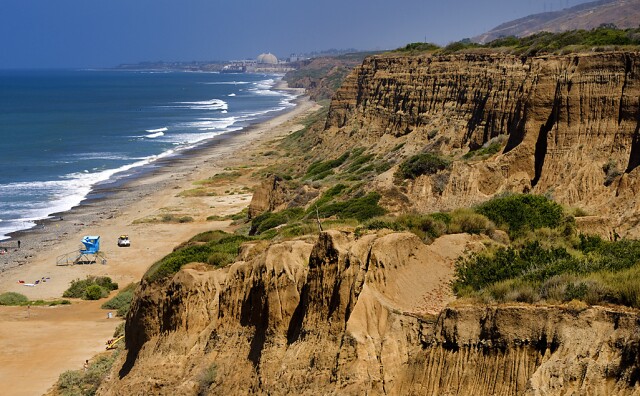'A Slow Burn Of Anti-Blackness'

The theme of our Black History Month coverage this year is, “What does it mean to be Black in L.A.?”We'll publish reponses from community members and staff throughout the month. Add your voice to the conversation below.
So far, we've heard LAist audience members and a longtime colleague of ours describe L.A. as a "place of possibilities." We've heard about the resiliency and pride in ones's whole self developed despite the duality of code switching. We've also heard about the hope for a Black community's future despite the disappearance of Blacks in L.A. These stories have underscored hardships stemming from racism, but that hasn't been the prevailing theme.
Today, two LAist readers share feelings of overt, explicit bouts of discrimination, marginalization, isolation and racism.
"I moved to Los Angeles back in 2008 from the East Coast. The one thing I can say about my experience here is that there's a slow burn of anti-Blackness felt in every aspect of life here.
"I feel that African Americans (in particular, Black males) don't get the benefit of the doubt for being a human being. Between the remnants of the gang era, the overt and disgraceful levels of Black poverty and homelessness and the lack of a centralized middle-class Black population, there's an immediate assumption of inferiority and fear aimed at the Black population.
"There's a thin veneer of liberalism laden with the pretense of fairness and equality, but this is reserved for every group of non-whites except African-Americans. I'm speaking as a man with two master's degrees and a successful career as a screenwriter. But when I'm out and about around town, white women clutch their purses, white people lock their car doors and arm their car alarms repeatedly in my presence. There's an immediate tension in the air without any evidence that I'm a threat other than the color of my skin.
"L.A. has a long way to go in addressing these issues because (compared to the East Coast) few out here tend to be honest about their biases and prejudices. As a result, nothing can or will change."
— Brandon, Long Beach
"It is a constant state of feeling marginalized. The city is very segregated. There are many places in the city where you feel completely unwanted, from East L.A. to the Valley to the Westside to Beverly Hills and Bel Air. You are constantly being reminded that you are Black and different with a heavy emphasis on that idea of Blackness is equated with being dangerous or criminal. Being Black informs all that I do: driving, picking a place to live, going to school, getting a job. You feel as though you are an outsider or a minority among minorities. Your ethnicity is at the bottom of all ethnicities in Angelenos’ eyes."
— Jessica, Glassell Park
MORE ON BEING BLACK IN LA
- On Being Black In LA: Erasure Of The Black Community That Once Was
On Being Black In LA: Code Switching To Survive Crossing Racial Lines
- On Being Black In LA: Being Bused Across Town Opened Up City As 'A Place Of Possibilities'
MORE FROM RACE IN LA
The 8%: Exploring The Inextricable Ties Between L.A. And Its Black Residents
- Racism 101: Facilitating Deeper Conversations On Race
Race In LA: How Does Your Race Or Ethnicity Shape Your Life?
The first installment of our The 8 Percent project began exploring the inextricable ties between L.A. and its Black residents — how Black migration, community and culture have shaped and changed L.A. For Black History Month, we’re homing in on a more specific experience — yours. Tell us: What does it mean to you to be Black in L.A.?
Our news is free on LAist. To make sure you get our coverage: Sign up for our daily newsletters. To support our nonprofit public service journalism: Donate Now.
-
The severe lack of family friendly housing has millennial parents asking: Is leaving Southern California our only option?
-
As the March 5 primary draws closer, many of us have yet to vote and are looking for some help. We hope you start with our Voter Game Plan. Since we don't do recommendations, we've also put together a list of other popular voting guides.
-
The state's parks department is working with stakeholders, including the military, to rebuild the San Onofre road, but no timeline has been given.
-
Built in 1951, the glass-walled chapel is one of L.A.’s few national historic landmarks. This isn’t the first time it has been damaged by landslides.
-
The city passed a law against harassing renters in 2021. But tenant advocates say enforcement has been lacking.
-
After the luxury towers' developer did not respond to a request from the city to step in, the money will go to fence off the towers, provide security and remove graffiti on the towers.






